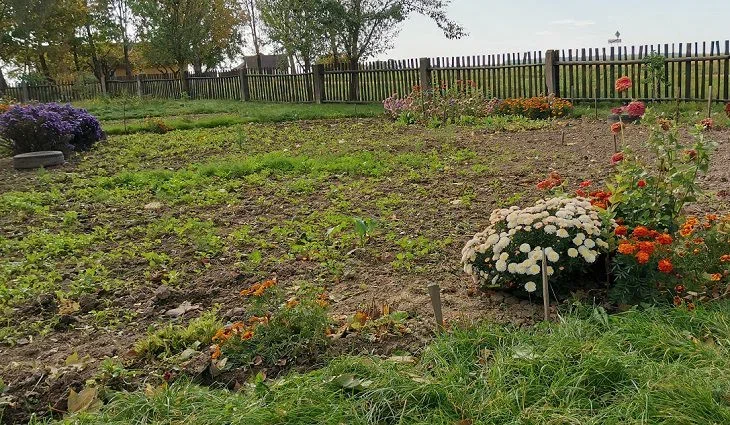Mulching improves the fertility of beds, retains moisture and suppresses weed growth. This is the process of covering the soil with a layer of protective material. Let's consider how, what and when to mulch beds so that the effect of this method is maximum.
Anastasia Kovrizhnykh , an expert of the online publication "BelNovosti", an agronomist and landscape designer, spoke about mulching beds.
How to mulch garden beds
1. Prepare the soil: Before you begin mulching, make sure the soil is well watered and aerated.
2. Choose mulch material: Mulch is divided into organic and inorganic. The first consists of organic materials - straw, hay, sawdust, peat or compost.
Inorganic mulch can be made from plastic, rubber, rocks, or polyethylene fabric. The choice of material depends on your gardening needs and availability.

3. Spread the mulch: Apply the mulch to the surface of the bed in a layer about 5-10 cm thick. Gradually, over time, the organic mulch will decompose and merge with the soil, providing it with additional nutrients.
How to mulch beds
1. Straw and hay: These organic materials are a popular choice for mulching garden beds. They suppress weeds, retain moisture, and protect plant roots from extreme temperatures.
2. Peat: Peat is a natural material obtained from peat bogs. It has excellent water-saving properties and is an excellent mulch for garden beds.
3. Compost: Compost is a natural fertilizer made from organic material. It is excellent for nourishing the soil and promoting its fertility. Compost can also be used as mulch.
When to mulch beds
1. In the spring: Mulching your garden beds in the fall helps retain moisture and warmth in the soil over the winter, but spring mulching is also important. Mulching prevents weed growth, retains moisture, and protects the soil from drying out.
2. Wet weather: Choose wet weather to mulch your garden beds to ensure that the soil retains moisture more effectively. The moisture will help the mulch to become saturated and create a barrier to moisture evaporation.
3. Regularly: Regularly mulching your garden beds will keep them in optimal condition. Add more mulch as needed to maintain its protective properties.
Earlier we talked about why cucumber seedlings die .









